- Learning time
- 10 minutes
- First play time
- 20 minutes
No Thanks!
Designed by: Thorsten Gimmler
In No Thanks! everyone is trying avoid picking up from a deck of cards numbered from 3-35, and paying coins for the privilege of not doing so. At the end of the game cards score against you, and coins score for you – the lowest points total wins.
Each player is given eleven coins and at the start of the game, the top card in the deck is revealed. The starting players’ choice is now to pick that card up and put it in front of themselves, or to put a coin on the card to say ‘No thanks’. The turn passes to the left and the next player faces the same decision – crucially, at some point somebody will choose to pick up the card because it’s accrued enough coins on it for them to think it worthwhile: more coins mean you can avoid more cards.
That’s basically the game, which continues until the deck is exhausted. But there’s a little twist – if you manage to get a run of cards together (from as little as two cards to as many as you like) then at the end of the game it’s only the lowest-scring card in that run that counts against you. This critical rule makes taking higher cards more plausible, and can swing the game wildly at times depending on which cards come out, in which order. But the game is never played with a full deck (nine random cards are removed previous to playing) so you can’t be sure of getting that card you need!
The guru's verdict
-
Take That!
Take That!
There is almost zero take-that in No Thanks, but taking a card you know someone else needs to complete a run is always an option - just usually an expensive one.
-
Fidget Factor!
Fidget Factor!
There's hardly any waiting around. Decisions are made in seconds.
-
Brain Burn!
Brain Burn!
It's a fast-moving game - your only choice is to pick up, or pay. Be careful not to run out of coins, though, or you won't have a choice at all!
-
Again Again!
Again Again!
Every game the cards are random so it's never the same.

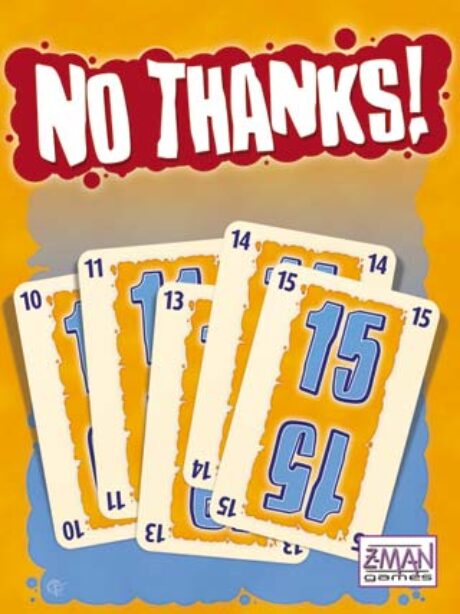
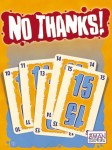
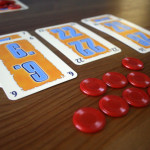
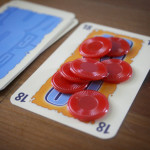


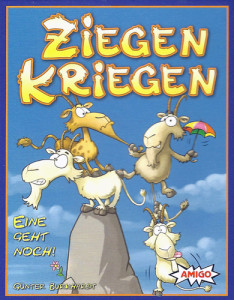
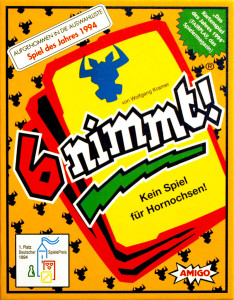

Sam says
A snappy game you can play in ten minutes, there's a nice push-your-luck element to it where you can go for cards that will - hopefully - link and if it comes off, pull off a big win. Another gambling element is how long you let a card "go around" the table that you actually want, but you know the other players don't want it, so it's gathering you a few coins. Push this too far and someone may take it anyway - possibly because they're forced to, having run out of coins!